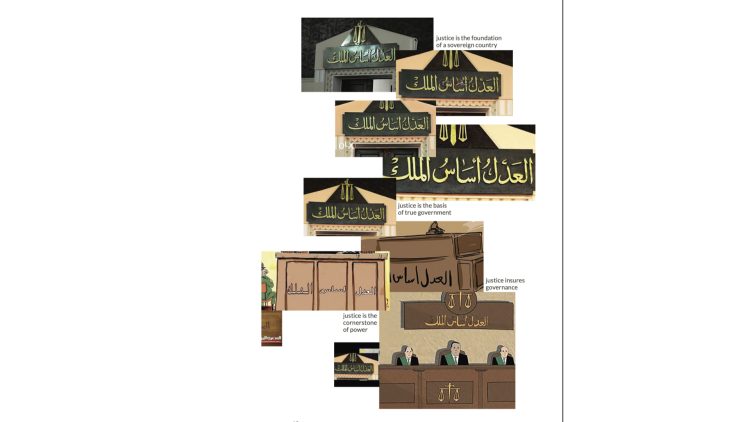Date: 10.10.2022
Beginning: 18:00
10. 10. 2022 from 6 PM in Acid Coffee
Dukelských hrdinů 500/25a, Praha 7 (Centre for Contemporary Arts Prague)
How do we speak the law? The enactment of the legal is a social construct brought about before the law and after its fictions. As socialised ghosts, our collective minds register each other’s codes, through methodical patterns of self-elevating humans. And through these, on-repeat renditions of memorised codes, we collectively share a law-like behaviour.
In her presentation, the artist Jasmina Metwaly will read and share images from a collective research on the theatricality of law.

Jasmina Metwaly (EG/PL, @benthanaa) is a visual artist and filmmaker living in Berlin. During Egypt’s Arab Spring, which toppled President Hosni Mubarak in February 2011, Metwaly was a founding member of the Mosireen media collective, which collected video footage of the revolution during the unrest and promoted citizen journalism in places not covered by the news media. She is also a co-founder of the 858 Resistance Archive, in which the collected video materials were published. She collaborated with filmmaker Philip Rizk to promote video activism and “documentary riots”.
Mosireen is a group of volunteer media activists who came together to document and transmit images of the 2011 Egyptian revolution. Between 2011 and 2014, they produced and posted over 250 videos online focusing on street politics, state violence, and labor rights. In addition to video production, they organized street screenings, educational workshops, production facilities, and campaign support. After the 2013 military coup, their work as a collective narrowed to organizing and publishing a large collection of video footage from the revolution, entirely under Creative Commons. 858: Archive of Resistance was published in January 2018.
The project was realized in collaboration with the Centre for Contemporary Arts in Prague, Fotograf Festival #12, and was financially supported by the Rosa Luxemburg Stiftung.